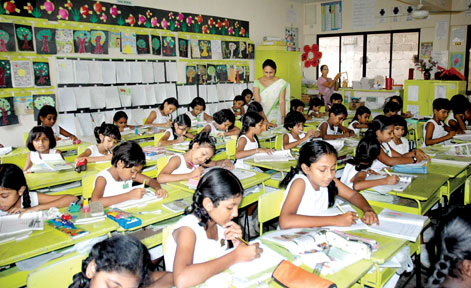English only policy
Agra T Wijeratne
Whatever the Newtonianist Economists profess, world is moving towards
a more localized, regionalized economic system due to environmental
consideration, where local Languages would become more important as it
is medium through which local knowledge is stored. However, there would
be larger aspect of the knowledge system which would be globalized where
international Language would be essential. Besides, what is to come is
Steady State Economics or a variant of it, not the (ever) growing and
increasingly globalized economies as envisaged by economic orthodoxy.
Hence, what is needed is a competency in English language and not
necessarily an exclusive language policy. Besides, with some tools of
Information Technology here to stay, there would be facilities to
translate for one Language to another. For example, it would be possible
to translate a work from English to Sinhalese Language and vice versa.
Language policy
Hence, one could have access enormous amount knowledge available
without having the competency in the original Language in which it is
done. However, it is possible that some knowledge may be "lost in
translation."
 |
|
Learning
English should be an interesting experience. File photo |
Language is the basis of cultures and to convert medium of
instruction in all universities (in the world) to 'English only' is akin
to growing a monoculture. This is like replacing Biological Diversity by
a mono-crop. For example, while rubber plantations are desirable, it is
not advisable to grow only rubber trees everywhere.
Key to sustainability is biological/cultural (language) diversity.
Like bio-diversity, languages also evolve being sensitive to
cultural/social/economical and environmental conditions. Hence, any
Language which is used sparingly is good as a dead Language. Besides,
any community is more at home creating knowledge in its own Language.
Cultural traditions
In the traditional Buddhist Pirivenas in Sri Lanka, more than one
Language was taught and it was the basis of the comprehensive knowledge
system that was present in this country. Thus, it would be advisable to
have an inclusive Language Policy which would use both English and
Sinhalese (Tamil). This would also facilitate the coining of terms in
Sinhala (Tamil) Language. Ideally, both Vidyodaya/ Vidyalankara
Universities could retain the policy of using Sinhala, as it was
originally designed to do so.
Besides, one could claim that there not many genuine Universities in
Asia, as these so called Universities are actually Satellites of
Protestant modernism/ post-modernism, where no knowledge is created
within cultural traditions. However, in Sri Lanka, there is an attempt
to create knowledge within its own culture in a limited way besides
imparting knowledge in the Protestant modernist/post-modernist
traditions.
To create knowledge within a culture, extensive use of local
languages is essential, as these are the storehouses of local knowledge.
This is akin to having a comprehensive knowledge in Mathematics to study
so-called modern Sciences as Mathematics is the Language of (most)
Sciences.
Hence, 'English only Policy' is possibly as myopic as the 'Sinhala
only policy' that was purported has existed some 50 years ago in Sri
Lanka.
|



